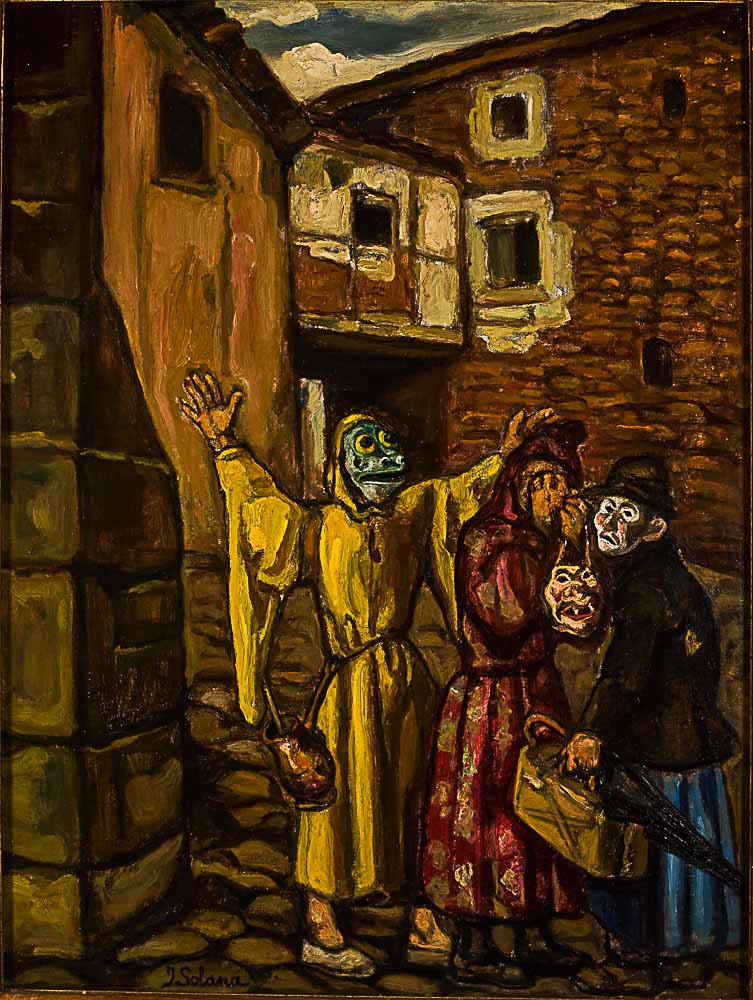
José Gutiérrez Solana (Madrid, 1886-1945)
Alligator Mask
ca. 1933
WORK INFORMATION
Oil on canvas, 80 x 60 cm
OTHER INFORMATION
Signed at the lower left corner “J. Solana”
In both his writings and paintings Solana repeatedly returned to the theme of carni-vals and scenes of masks, subjects familiar to him from childhood when a masked figure burst into his family home with the intention of committing a robbery, leaving the artist with oppressive, angst-ridden memories. All his publications devote at least one chapter to this subject, to which he returned obsessively throughout his life in his paintings, drawings and prints.
In his treatment of masks Solana followed Goya to some extent, particularly in the latter’s Caprichos, focusing on the reality of the person hiding behind the animal masks that appear in different contexts and settings.
Madrid had a number of workshops that made masks including one belonging to Solana’s friend Emeterio. It was located in the Vistillas district and Solana would un-doubtedly have visited it to gain inspiration.
Solana used an ironic approach in his painted depictions of masked figures. In his own words: “All of them experience that lack of inhibition and boldness that wearing a mask brings.” He also, however, approached this subject in a more light-hearted manner: “[…] and imitating animals; one bellowed like a bull, another imitated a cockerel, the braying of an ass, the cackling of a chicken, the lowing of ox, and they wore imitation cardboard heads of these animals, very thrilled and excited with their disguises.”
This work includes various figures, most notably one in an alligator mask with out-stretched arms as if haranguing the others.
The architectural setting of simple houses made of mud, wattle and stone could refer to any village in Castile, although it could also be Madrid where the San Antón carni-val was held in which participants wore animal masks.
María José Salazar
